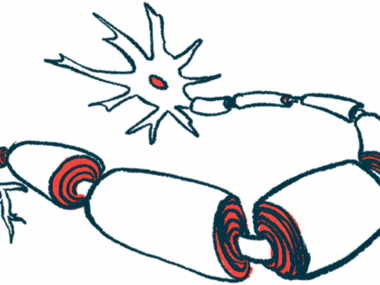Pasithea Plans to Develop Vaccine to Prevent Immune Attacks on Myelin
Written by |
Pasithea Therapeutics announced plans to develop a tolerizing vaccine that would treat multiple sclerosis (MS) by “training” the immune system in ways that prevent its damaging attacks.
The vaccine will be developed under Pasithea’s new chemical entity development program for MS in collaboration with Hooke Laboratories in Massachusetts.
“Our decision to initiate a program in MS is a strong strategic fit and a natural progression of our work and mission,” Tiago Reis Marques, MD, PhD, CEO of Pasithea, said in a press release.
The research will be led by Lawrence Steinman, MD, Pasithea’s chairman and a Stanford University professor of neurology. Steinman was involved in the development of Tysabri (natalizumab), an approved MS therapy.
“[Professor] Steinman’s expertise, along with our capabilities in central nervous system disorders, position us well to develop a new approach for the treatment for MS,” Marques said.
While traditional vaccines are used to generate immune responses against a particular pathogen, tolerizing vaccines train the immune system to accept certain molecules, thereby suppressing damaging immune responses against them.
In MS, the immune system wrongly attacks myelin, the protective coating surrounding nerve cell fibers. A tolerizing vaccine would aim to prevent the immune system from launching this mistaken attack.
A study published by researchers at BioNTech last year detailed promising preclinical data on that company’s tolerizing vaccine. It reprograms a subset of immune cells called regulatory T-cells, teaching them to suppress unnecessary immune reactions against myelin-associated proteins. BioNTech employed the same messenger RNA (mRNA) technology used in its approved COVID-19 vaccine, which was co-developed with Pfizer.
While the specific molecular target of Pasithea’s vaccine was not stated, it will be developed based on recent findings on the mechanisms driving MS, according to the company.
“Our goal is to develop a tolerizing vaccine with a favorable safety profile and high efficacy, following on recently discovered mechanistic links driving the pathophysiology of MS,” Steinman said. “The clinical potential of this strategy is large and exciting, as it can provide a novel method of treating a fundamental cause of the disease.”
Researchers at Hooke will conduct preclinical studies to evaluate the vaccine in a mouse model of MS called the experimental autoimmune encephalomyelitis, or EAE, model.
“Hooke is the world’s most experienced EAE [contract research organization], and we are delighted to be working with Pasithea to advance this important research program,” said Suzana Marusic, MD, PhD, Hooke’s founder.



